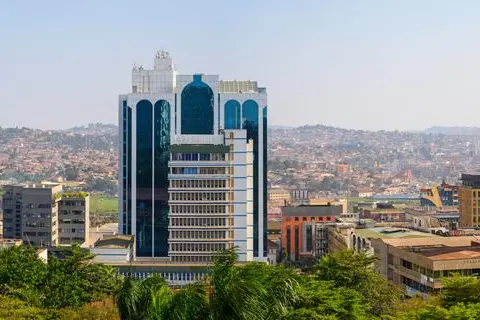PHOTO
Twelve months since Uganda emerged from a restrictive Covid-19 control regime, the results for the country’s lenders remain mixed.
Faced with low economic growth, high inflation and increased lending rates stimulated by tight monetary policy actions, banking industry insiders have hinted on modest profit growth for 2022, against the optimism at the beginning of this year.
Patrick Mweheire, Stanbic Group’s Regional Chief Executive Officer for East Africa, warns that credit growth has dropped from 16 percent before the pandemic to less than 10 percent currently, the upshot of which is less asset growth and lower profit growth.
Already, most of the top tier banks posted increases in pre-tax profit of less than Ush20 billion ($5.4 million) during the first six months of 2022. This may be seen as a sign of slow revenue growth felt across the industry.
This has been blamed on the government’s credit relief measures offered to the education, leisure and hospitality sectors in light of the severe negative impact caused by the pandemic lockdowns, which tampered with lenders’ profitability patterns amid concerns of cybercrime risks and a difficult economic situation.
Economic uncertainty
With the re-opening of the economy, it was hoped that big annual events like the Uganda Martyrs annual fete held in June, the Nyege Nyege cultural festival in September and the MTN Uganda Marathon in November would create a windfall for small businesses that sell food, beverages and luxury items to participants.
However, uncertainty over the final expiry of extended credit relief measures saw some businesses struggle to recover. Under the credit relief measures, borrowers were entitled to loan restructuring options that could generate improved cashflows for business, reduced risks of their property being attached and higher chances of business survival. The credit relief measures had been introduced in April 2020 but were terminated by Bank of Uganda in September this year.
But the discounts applied on outstanding principal and interest charges due against one’s loan facility were not included in credit restructuring packages.
Also, prolonged school closures and suspension of large gatherings suffocated many private schools and hotels, leading to closure and bankruptcy.
Five-year waiting period
“The Covid-19 pandemic and related challenges like the current Ebola outbreak are likely to affect recovery in the leisure and hospitality industry. We are looking at a five-year waiting period before the sector can achieve pre-lockdown growth momentum,” said Stephen Wanyama, a former hotel manager.
He argued that some hotels might require as much as Ush800 million ($215,697) to recapitalise operations and realise full operating capacity.
Mweheire suggested the measures offered to the education sector ought to remain in place for a longer period because the sector is likely to take longer to recover.
© Copyright 2022 Nation Media Group. All Rights Reserved. Provided by SyndiGate Media Inc. (Syndigate.info).




















